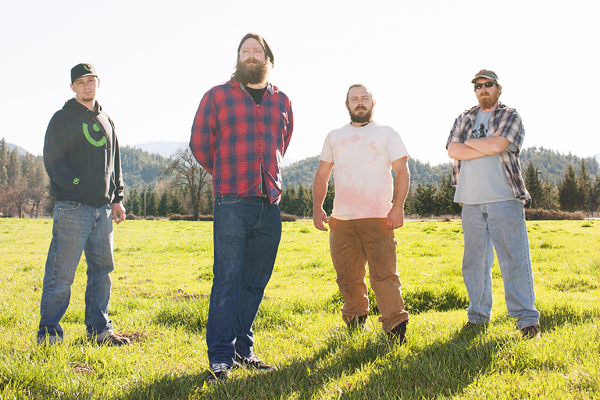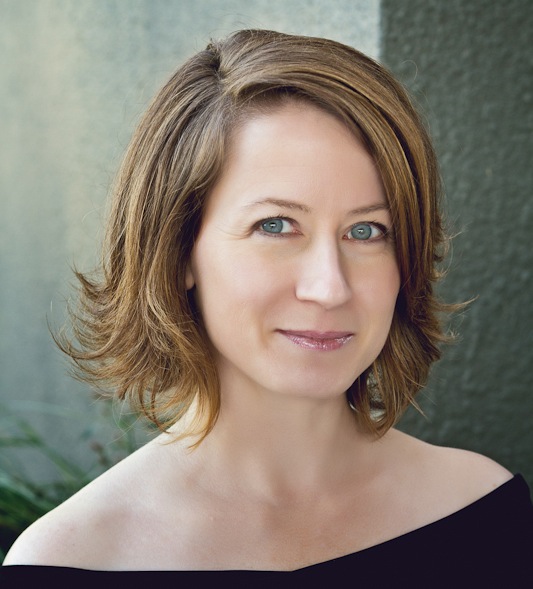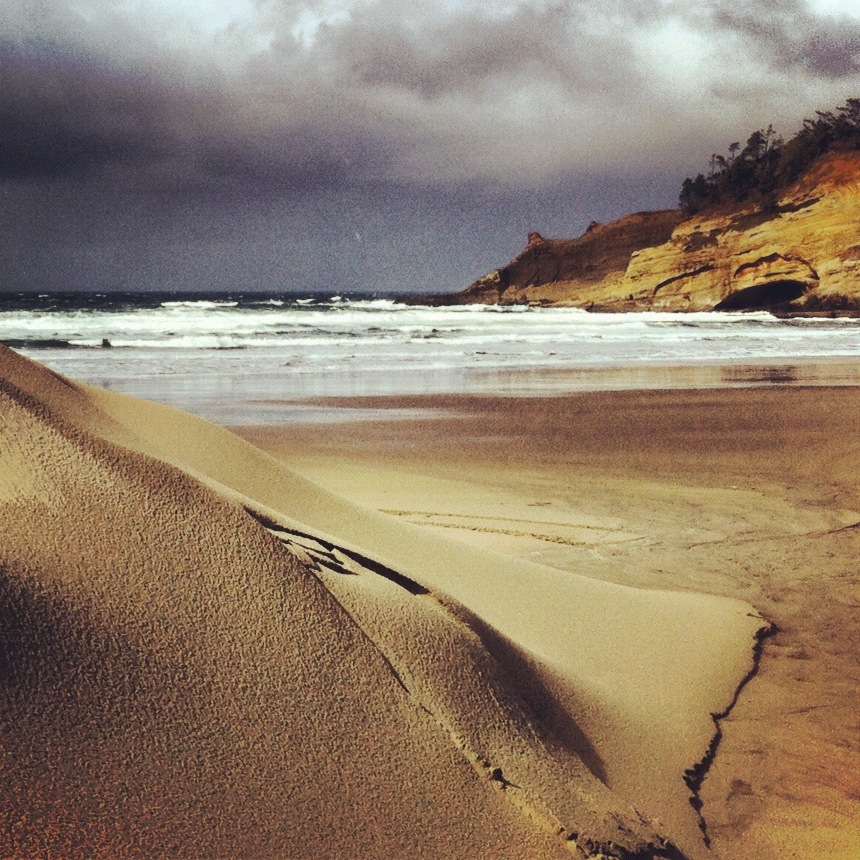Oom-pah-pah music saunters over on the low beats of tubas—including Germany’s own Donaumusikanten band—and keeps feet a-tappin’ all day and long into the night. Festival-goers donning dirndls eat schnitzel, gather in the biergarten and weingarten and partake in massive spontaneous renditions of the now-traditional chicken dance of Oktoberfest.
Every September, a Bavarian buzz envelopes Mount Angel’s Oktoberfest.
“You really don’t understand Oktoberfest ‘til you come,” says Jim Hoke, owner of Mount Angel Sausage Company. Indeed, Mount Angel is best seen through the prism of Oktoberfest. Families open their land to strangers for camping, and everyone in town pitches in to help with the festival. “It’s a surreal experience for newcomers,” adds Hoke. Witty and foul-mouthed with a touch of circumspect philosopher, Hoke embodies the cheerful yet profound ardor of Mount Angel.
It is here in the tiny town of Mount Angel that you will drink in solidarity with more than 350,000 Oktoberfest revelers from around the world at one of the top Oktoberfests outside of Germany. For a town of just more than 3,000 full-time residents, this is quite the feat. Even when Oktoberfest is not on tap, it is not unusual to see people strolling around town in lederhosen or dirndls, says Jerry Lauzen, himself clad in lederhosen one summer afternoon.
The original home of Oktoberfest is Bavaria, the largest state in Germany, with Munich and its Hofbräuhaus at its center. Though only celebrating its forty-seventh year in its German form, a harvest celebration has taken place in Mount Angel since 1878, when flax was the primary crop. After World War II, the United States demand for flax waned—and so did the harvest celebrations. Dairies replaced flax farms and Dairy Days became the main event. That, too, was short-lived because knocking back glasses of whole milk didn’t really stoke the fires of jubilation.
Finally in 1966, the town with strong Bavarian roots came full circle with a true Oktoberfest tradition. Paul deShaw, a local Bavarian chalet owner, was the brains of the operation. His motto: “delivering happiness,” is a phrase that well suits festival-goers and organizers to this day.
Traditional German beers with consonant-heavy names flow like water around town. American Hefeweizen holds its own, too. Shockingly, in a state of microbreweries, there is no local Mount Angel brew (apart from root beer-maker, Mount Angel Brewing Company). There is, however, sausage.
Mount Angel Sausage Co. founder, Hoke, started his business in an old warehouse twelve years ago after a visit to Oktoberfest from his home in Salem. “I nearly fell over when I realized there was no sausage in a Bavarian town,” he says of Mount Angel. With the help of his son, James Jr., Hoke has transformed the building into a huge pub and sausage distributor. The younger Hoke is now largely running the family business after eight years of apprenticeship.
This type of small family business is typical industry in Mount Angel. Locals have kept an affinity for the land and nature, even after the agricultural industry largely left town. Earthly bounty is the focus of Oktoberfest. “We do the whole bio thing, ya know,” mentions Hoke. His meat is hormone-free and from nearby Butcher Block Farms in Wilsonville.
Settlers first arrived in what would be Mount Angel during the 1850s, followed closely by German Catholic groups in 1867. That same year, a Catholic leader named Mathias Butsch advertised the land as “a slice of Bavaria in the West” in German language newspapers in the American Midwest region.
The completion of the railroad in 1880, a church in 1881 and the arrival of a Swiss community of Benedictine monks from Engelberg soon thereafter, added permanence to the town. Rapid growth resulted in four township names in three years. Mount Angel, the English translation of Engelberg, became the official moniker under the influence of the Benedictine monks and was incorporated in 1893.
Today, the Benedictine Sisters’ Queen of Angels Monastery (guided tours available) and Mount Angel Abbey sit atop Long Butte in Saint Benedict (complete with its own post office), overlooking rolling hills of Mount Angel and the mid-Willamette Valley for miles. The Abbey’s captivating grounds, two museums and a 370,000-volume research library are open to the public. The library, designed by legendary Finnish architect, Alvar Aalto, is itself an attraction to students and admirers of his work.
Steeped in a history of voluntarism, Mount Angel is a model for community service. One hundred years ago, skilled volunteers gifted in various trades built the Revival Gothic-style church, Saint Mary Church. Today, architecture tourists and worshippers alike come to marvel at its stained glass windows and breathtaking archways.
The Edelweiss building, the town’s cornerstone of old German gingerbread architecture, houses the Glockenspiel, and was also built by local craftsmen. The giant cuckoo is turned on at a whim any day of the year. Music booms and life-size statues of the major historical folks of the area tell a visual story of Mount Angel history. Figures of the native Kalapuya Indians, the civil and religious city founders, and the European-descended celebrators of Oktoberfest— young and old—take turns as the center of attention.
A true folk festival, Oktoberfest is a nonprofit organization. Other than funding for the construction of a new venue called the Festhalle and operating costs, all proceeds go to local charities and nonprofit organizations, with more than $3 million donated to the community since the festival’s inception.
In keeping with the deep history of service in the community, sausage-maker Hoke says he wants to leave Mount Angel and the world “better than I found it.”
Mount Angel
Info
Population of Mount Angel 3,285
Population growth (2000-2010) 5.3%
Median household income $42,924
Median single-family home price $206,400
What to Do
Enjoy A schnitzl or some spätzl
Drink Spaten on tap
Visit Saint Mary Church








